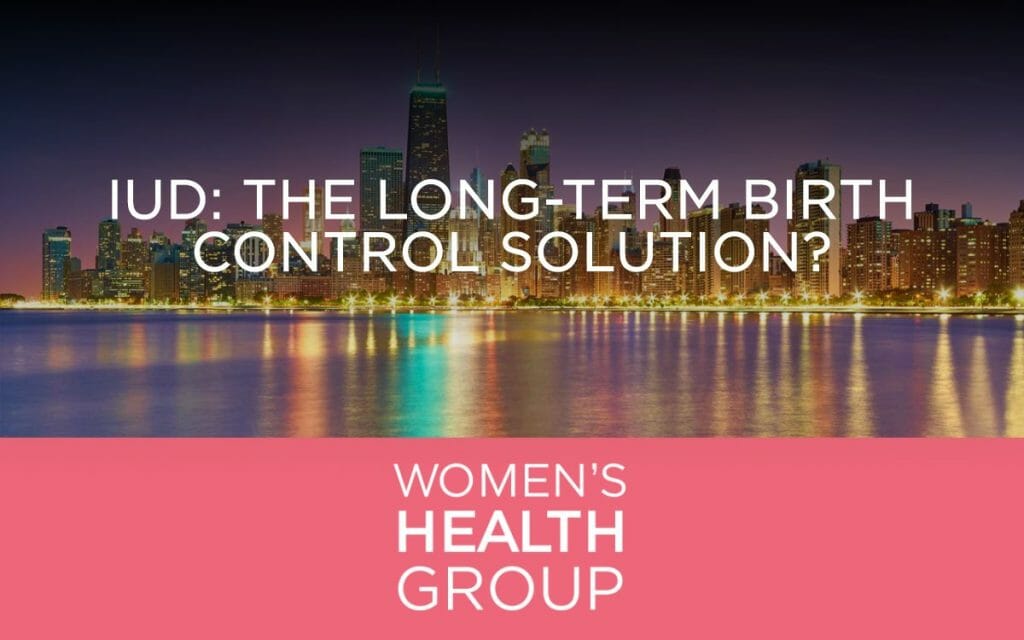Unpacking the Concept of IUD as a Long-Term Birth Control Solution
If you’re seeking an effective, long-lasting solution to prevent pregnancy, Intrauterine Devices (IUDs) may be an innovative choice. Ranked as one of the most potent birth control methods by health professionals worldwide, they’re an option highly worth considering. As a Women’s Health Group in Chicago, we aim to shed light on IUDs, discussing the pros and cons to help women make well-informed decisions about their reproductive health.
Diving into the Details of IUDs
IUDs are tiny, T-shaped devices inserted into the uterus to prevent pregnancy. There are two main types – hormonal IUDs, which release progestin (the same hormone found in birth control pills), and copper IUDs, which deliver copper ions to repel sperm.
Key features of IUDs include:
– Flexibility to use from three to twelve years
– Over 99% effectiveness in preventing pregnancy
– Quick return to fertility once removed
– Both hormonal and non-hormonal options available
To learn more about these details, you can visit the Mayo Clinic’s comprehensive guide on IUDs.
Reasons Behind the Growing Popularity of IUDs
Today, IUDs are gaining popularity for their long-term birth control benefits. With an efficacy rate of over 99%, they are one of the top choices among women. Being “fit and forget” devices, they remove the hassle of daily or monthly contraceptive methods while assuring almost foolproof protection.
Importantly, IUDs provide the luxury of choice – whether you prefer a hormonal or non-hormonal method, there’s an IUD for you. Additionally, the devices act as a long-term, yet non-permanent solution for women who may want to conceive in the future.
Common Concerns and Misconceptions about IUDs
Despite their benefits, there are misconceptions surrounding IUD usage, often leading to hesitation. Some women worry about the pain associated with insertion and potential side effects. Others express concerns about IUD meaning infertility even after removal.
It’s crucial to note that while IUD insertion can lead to discomfort, the sensation is often short-lived. Most side effects, like irregular periods or mild cramping, frequently subside after a few months. Importantly, the IUD does not cause infertility. In fact, fertility often returns quickly once the device is removed.
The Potential Downsides of IUDs
While IUDs are an excellent option for many, they’re not for everyone. Certain women might experience accessibility issues or cannot use IUDs due to medical conditions. Additionally, IUDs do not protect against sexually transmitted infections (STIs), so they are not the most suitable for individuals at risk of STIs.
Remember, it’s essential to have a thorough discussion with your healthcare provider regarding your medical history and lifestyle before choosing a contraceptive method.
Embracing IUDs: A Shift in Birth Control Paradigms
Choosing the right birth control method can be difficult. But as we embrace new technological advancements within the healthcare system, it becomes clear that IUDs are a valuable asset in the realm of contraception. They represent a shift in birth control paradigms towards long-term and highly effective solutions.
While they may not be suitable for everyone, their unique benefits make them an attractive choice for many women looking to take control of their reproductive health. If you’re interested in learning more about this birth control method, we encourage you to reach out to a healthcare provider or visit women’s health.gov resources on birth control methods for more information.
Final Thoughts on IUDs as a Long-Term Solution
As OB-GYN practitioners dedicated to empowering women to make informed decisions about their bodies, we believe IUDs – with their high efficacy rate and long-lasting convenience – offer an attractive birth control option. They are an affirmation of choice in the world of women’s reproductive health, providing an excellent blend of convenience, lasting impact, and reliability.
In conclusion, when considering an IUD, it’s crucial to weigh the initial discomfort against the long-term benefits and consult with your healthcare provider. The world of IUDs is a testament to the evolving landscape of birth control solutions. They serve as a beacon of hope for those seeking a long-term, reliable, and effective birth control solution.




